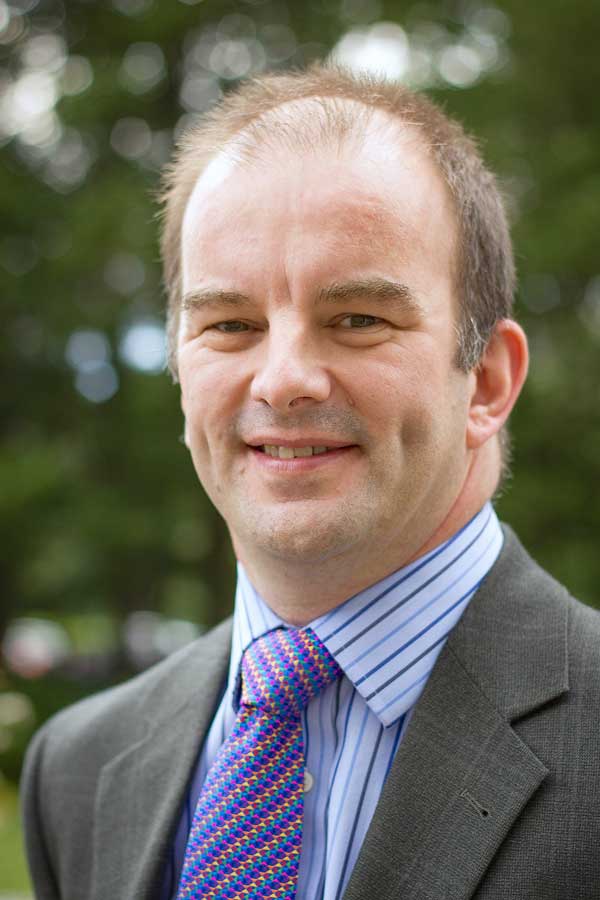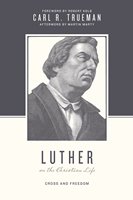Glad to have you back with us here at Books At a Glance as we continue our discussions about the Protestant Reformation. I’m Fred Zaspel here with Dr. Carl Trueman, and last time we talked to him about Martin Luther and the Rediscovery of Justification by Faith. Today we’ll follow Luther’s reforms a bit further.
Carl, how was the doctrine of justification by faith the “the material principle” of the Reformation?
Trueman:
The doctrine of justification by faith is the material principle of the Reformation because it is the substantial doctrine that changes everything. I mentioned last time the difference between Protestants and Catholics on justification relative to the Word and sacraments. The doctrine of justification requires a fundamental reconfiguring of Protestant liturgy. It has to be in the vernacular so people can understand it. Preaching of the Word has to be central because it’s the Word grasped by faith that justifies. Sacraments are subordinated to the Word; there can be no administration of the sacraments without the proclamation of the Word. The notion of church authority changes because the Scripture principle moves to the center. Partly because it becomes clear the church has got this doctrine so wrong for so long and therefore issues of Papal and Council authority are called profoundly into question; and partly because justification by faith indicates that our God is a speaking God; he has spoken Scripture, and therefore Scripture must be authoritative. So the doctrine of justification is the center point around which Christianity is materially reconstructed, if you like, in the 16th century.
Zaspel:
Warfield makes the statement somewhere that the Protestant Reformation was, if we can reduce it to something simple, the substitution of one set of doctrines for another, and at the heart of it was this issue. It was not only the issue at point in Luther’s own experience, but the Reformation itself, right?
Trueman:
Yes. I would quibble with Warfield slightly there and say that Catholicism is not simply Protestantism with other doctrines. It’s a whole different way of thinking about the church and authority. But I think, as with a lot of simplifications, with that kind of quibble I think Warfield really captures something very important there.
Zaspel:
Last time we talked about Luther’s own discovery of justification by faith and how that shaped his own experience. How did his work of reform proceed from here? And what other theological issues played an important role?
Trueman:
Well, I’ve already touched on some of those, of course, in my first answer. Clearly one of the things, one of the practical things that Luther wanted to do was transform the curriculum at the University of Wittenberg. He’s preparing young men, many of whom would be going into ministry. With a new understanding of the Gospel and the role of the church, it was important to revise the curriculum. So at a very practical level, Luther was engaged in what we would now call curriculum review. And things like the biblical languages took on a prominence that they had not had before, because it became critical for every student, every pastor, to be able to read the Bible in the original, in order to be able to fulfill his task as a guardian and a preacher of the gospel. Luther was also working out the implications of justification by faith for a whole plethora of other doctrines. I mentioned earlier, it required a reconstructing of the notion of authority and therefore reconstructing of the notion of the church. It has implications for the bondage of the will. It had implications for understanding the significance of the Lord’s Supper and Baptism. So Luther’s Reformation really from, I would say, from late 1518 onwards starts to take on a pretty thorough-going agenda. It requires revision also of the relationship between church and state, reconfiguring of how the sacred and the secular are understood to connect to each other. Luther’s Reformation really, eventually touches everything. It’s an overused cliché I suppose, but he does in a sense turn the world upside down.
Zaspel:
How did all that move forward? Were there “moments” and giant steps at some events? Or was it a more process of reforms that grew?
Trueman:
I think it was a mixture of the two. Luther had some significant triumphs in his early days. The Heidelberg Disputation of April, 1518 represented a dramatic statement of Reformation theology in the public realm. The year 1520 when he writes The Babylonian Captivity of the Church, On the Freedom of a Christian Man, and An Appeal to the German Nobility represented a year when really it seemed that anything was possible; and he sets forth this comprehensive new vision for church and theology. By the late 1520s there are setbacks. The Peasants’ War divides the Lutheran movements; there’s the struggle with Zwingli Protestantism in Germany and Protestantism in Switzerland decided to go into different directions. There are internal squabbles and debates within Lutheranism itself. The parish visitation of the late 1520s indicates that gospel preaching is not having the impact that Luther wanted. So maybe 1525 is a watershed year when things start to become more complicated. In 1530 the Emperor refuses to subscribe a Lutheran confession, the Augsburg Confession, and it divides the Empire religiously. So the world becomes a lot more complicated after 1525; but the early years certainly were fairly triumphant ones for Luther.
Zaspel:
Describe for us the political situation that made the Reformation in Germany possible for Luther.
Trueman:
There was considerable amount of anticlericalism at the time, the early sixteenth century, from various classes of society. The knights and the nobles resented the judicial political power that Rome was exerting in the German-speaking lands and also resented the flow of tax money to the south. The peasants latched onto the flow of tax money to the church as something that was feeding and enabling corruption. So Luther struck a chord at a time when there were many people in German society with a vested interest in increased independence from the Roman church who weren’t necessarily theologically motivated. The great success of Luther is that he is able to build or capitalize on this coalition of forces in the early years, who may not be united in their theological ambitions, but are certainly united in the idea that the papacy must be weakened. Before the Diet of Worms one of the papal emissaries in Germany warns the Pope that this is a really bad idea, the Diet of Worms, he says, because nine-tenths of Germany are crying out for Luther, and the other tenth, if Luther means nothing to them, are saying, “Down with the Papacy.” So the popular opposition to Rome at the time meant that people were looking for an idiom, if you like, to express that opposition and Luther provided it quite brilliantly.
Zaspel:
We’re talking to Dr. Carl Trueman, professor of church history at Westminster Theological Seminary about the Protestant Reformation. Next time Dr. Trueman will talk to us about Luther and Erasmus. We hope you’ll join us! And be sure to check out some of his books here on this page.
Grace Alone—Salvation as a Gift of God: What the Reformers Taught…and Why It Still Matters (The Five Solas Series)
wtsbooks
Paperback
Luther on the Christian Life: Cross and Freedom
wtsbooks
Paperback
Histories and Fallacies: Problems Faced in the Writing of History
wtsbooks
Paperback
The Creedal Imperative
wtsbooks
Paperback
Reformation: Yesterday, Today and Tomorrow
Amazon
Paperback
wtsbooks
Paperback
John Owen: Reformed Catholic, Renaissance Man (Great Theologians)
Amazon
Paperback
wtsbooks
Paperback
Minority Report: Unpopular Thoughts on Everything from Ancient Christianity to Zen Calvinism
wtsbooks
Paperback

